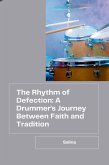: Life is a tapestry woven with threads of beginnings, middles, and, inevitably, endings. While we often celebrate new chapters and exciting adventures, the significance of peaceful endings shouldn't be overlooked. These resolutions, whether big or small, personal or professional, hold the power to shape our emotional well-being and propel us forward with a sense of closure and clarity. This essay explores the multifaceted importance of peaceful endings. We'll delve into the psychological impact of closure, the ripple effects on relationships, and the role peaceful endings play in personal growth. Additionally, we'll explore practical ways to achieve a sense of peace when faced with endings, big or small. The Power of Closure: Healing the Emotional Landscape Imagine a story left unfinished, a melody abruptly cut short. This lack of closure creates a sense of unease, a lingering question mark that disrupts our emotional equilibrium. Peaceful endings, on the other hand, provide a sense of resolution. They allow us to acknowledge the change, process our emotions, and move forward with a clearer perspective.
Bitte wählen Sie Ihr Anliegen aus.
Rechnungen
Retourenschein anfordern
Bestellstatus
Storno









